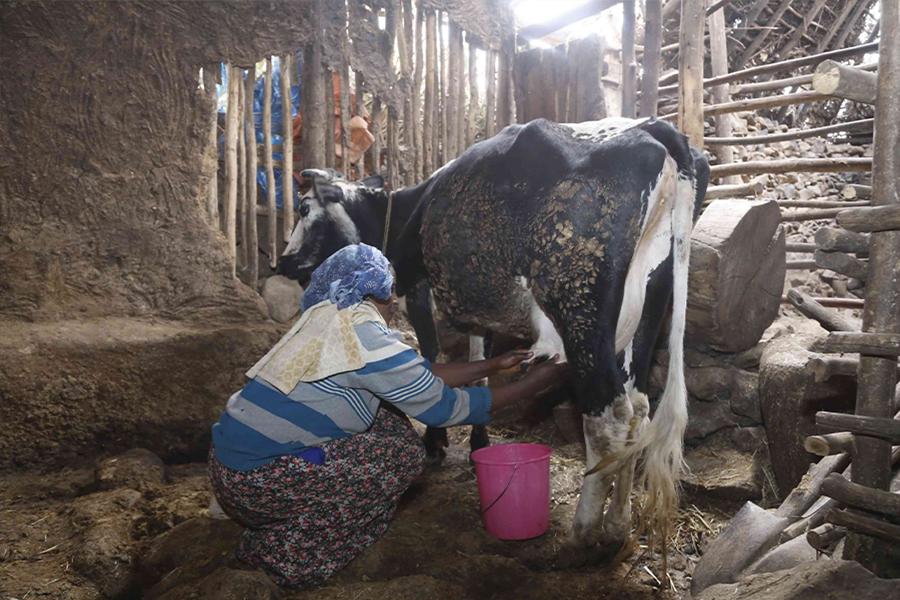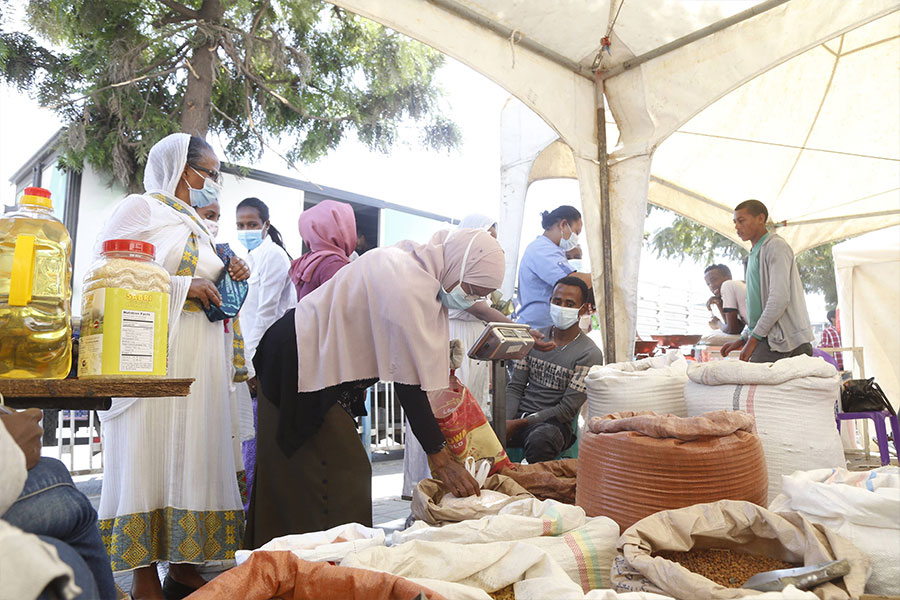
Radar | Apr 02,2022
The stalls of Atkilt Tera market in Addis Abeba were uncharacteristically empty. Onions, a staple of Ethiopian cuisine and indispensable for holiday meals, have become scarce and prohibitively expensive. Prices have doubled in just three weeks, reaching 120 Br for a kilogram, casting a shadow over the New Year celebrations, leaving traders and consumers in dismay. Supply routes from the key agricultural regional states of Oromia and Amhara have been disrupted, forcing wholesalers to source onions from distant areas such as Harar and Jinka. According to traders, prices have doubled unexpectedly, as stocks rapidly deplete. They paid 105 Br a kilogram after futile bargaining, worrying about the impact on their small businesses.
The pressure on the market extends beyond onions. Tomato prices have tripled to over 60 Br a kilogram over the past month. Agronomists from the Amhara Regional State Bureau of Agriculture attributed the hikes to a combination of seasonal changes, violent conflicts, and intermediaries blamed for taking advantage of the situation. Security issues have prevented half of the 119,000 horticulture farmers in North Shewa Zone from planting, while heavy rains have pushed others to switch from vegetables to more resilient cereal crops. Efforts to respond to the shortages are underway, according to the Addis Abeba City Trade Bureau, whose officials have opened new agricultural markets where onion prices are slightly lower, around 95 Br a kilogram. However, experts warn that systemic and unresolved political issues continue to undermine the horticulture sector. Post-harvest losses, which the Food & Agriculture Organisation (FAO) estimates at over 40pc due to inadequate storage, exacerbate the instability.
The holiday season, usually a time of abundance, has laid bare the crisis. At Shola Gebeya market, poultry traders noticed an apparent drop in customers despite only modest price increases. It did not feel like a holiday market, according to a chicken trader who sold 30 of his 100 chickens. For consumers, the soaring prices mean making a painful trade-off as several decided to forgo buying a chicken for the celebrations. Other staples have seen similar price hikes: cardamom has doubled to 1,100 Br for a kilogram, honey reached 600 Br, and the spice mix “mekelesha” surged to 1,600 Br. Livestock markets tell a similar story, with cattle prices ranging from 45,000 Br to 200,000 Br, making meat an unattainable luxury for many. Traders displaced by urban redevelopment find themselves without customers, as consumers struggle with shoestring budgets. As the cost of living continues to rise and incomes remain stagnant, the festive spirit has become a distant memory for many Ethiopians.
You can read the full story here
PUBLISHED ON
Sep 14,2024 [ VOL
25 , NO
1272]

Radar | Apr 02,2022

Fortune News | Aug 15,2022

Agenda | May 17,2025

Agenda |

Fortune News | Mar 20,2021

Dec 22 , 2024 . By TIZITA SHEWAFERAW
Charged with transforming colossal state-owned enterprises into modern and competitiv...

Aug 18 , 2024 . By AKSAH ITALO
Although predictable Yonas Zerihun's job in the ride-hailing service is not immune to...

Jul 28 , 2024 . By TIZITA SHEWAFERAW
Unhabitual, perhaps too many, Samuel Gebreyohannes, 38, used to occasionally enjoy a couple of beers at breakfast. However, he recently swit...

Jul 13 , 2024 . By AKSAH ITALO
Investors who rely on tractors, trucks, and field vehicles for commuting, transporting commodities, and f...

Oct 25 , 2025
The regulatory machinery is on overdrive. In only two years, no fewer than 35 new pro...

Oct 18 , 2025
The political establishment, notably the ruling party and its top brass, has become p...

Oct 11 , 2025
Ladislas Farago, a roving Associated Press (AP) correspondent, arrived in Ethiopia in...

Oct 4 , 2025
Eyob Tekalegn (PhD) had been in the Governor's chair for only weeks when, on Septembe...